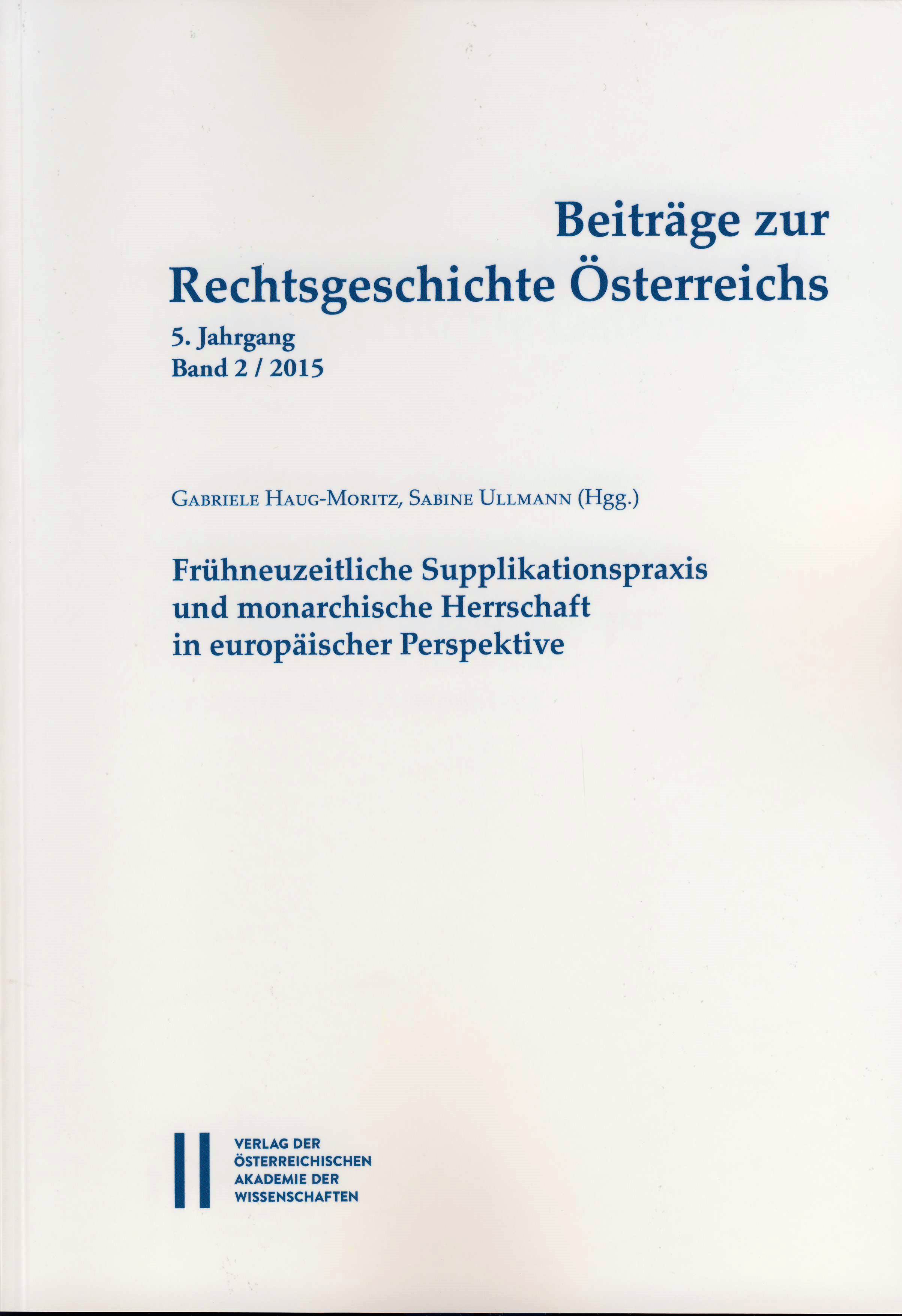
Beiträge zur Rechtsgeschichte Österreichs 2 / 2015, pp. 349-370, 2015/12/11
Frühneuzeitliche Supplikationspraxis und monarchische Herrschaft in europäischer Perspektive

The following contribution aims to outline the multiple ways of asking for mercy and the king’s role as bestower of grace and justice in early modern France from the eve of the Wars of Religion to the end of the reign of Louis XIV. Initially, the article considers procedures, terms, and forms resulting in royal acts of grace. In a second part, it presents contemporary conceptualisations of royal power focused on the king as “roi justicier” and discusses the place of bestowing grace in the context of this ideal vision. Finally, the functions and limits of asking for mercy and bestowing grace in early modern France are analysed. It is argued that these interactions constituted a common form of communication between the king and his subjects which, in many cases, benefited both the crown and the subjects who addressed the king. On the other hand, the costs of this system closely related to the Old Regime’s system of patronage should be taken into account.
Keywords: French king, bestower of grace and justice, asking for mercy